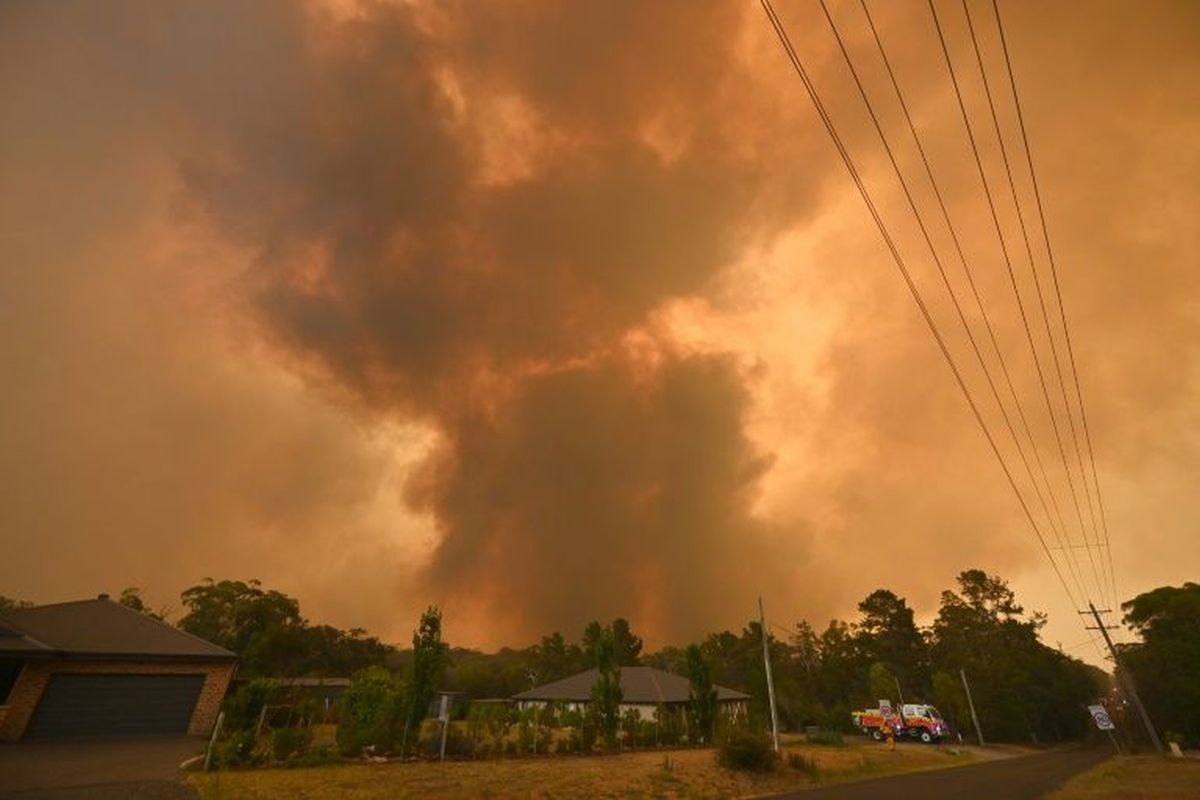Australian Prime Minister Scott Morrison visited firefighters battling Australia’s bushfire crisis on Sunday as he apologised for a Hawaiian holiday that ended early after public outrage.
Morrison toured the headquarters of the New South Wales Rural Fire Service — whose exhausted volunteers have been struggling to contain deadly, out-of-control-blazes for months on end — where he admitted he had erred in travelling overseas.
Advertisement
PM Morrison said, “I get it that people would have been upset to know that I was holidaying with my family while their families were under great stress”.
Australia’s bushfire emergency has killed eight people, destroyed more than 700 houses and scorched millions of hectares since September.
Morrison had departed for a family holiday amid record bushfires that have destroyed an area the size of Belgium and cloaked major cities from Brisbane to Sydney to Canberra to Melbourne in choking toxic fumes.
His absence this week, as well as his initial refusal to confirm his whereabouts, has drawn condemnation and protests.
On Thursday, Australia’s New South Wales (NSW) state declared a state of emergency, with bushfire conditions expected to worsen over the coming days as a record-breaking heatwave sweeps across the country.
In November, New South Wales’ Rural Fire Service said Thursday morning there were about 60 fires active, with 30 of them uncontained in the state where some 1,200 firefighters tried to mitigate the flames in the face of worsening conditions, such as rising temperatures and wind.
Dozens of fires also burn in the neighbouring state of Queensland and authorities have ordered an evacuation in towns such as Noosa North Shore and Woodgate.
The fires have been fuelled by tinder-dry conditions after three years of drought that experts say has been exacerbated by climate change, a factor that has sparked a sharp political debate in recent days.
Several new fires broke out to scores of blazes that have been burning for several days across New South Wales (NSW) state.
Queensland is on high alert amid severe fire conditions, with a forecast wind change expected to worsen several large blazes in difficult-to-access areas of the state.











